Ciao a Tutti!
I’m very honored to hold this office, following the long tenure of our beloved Dan. It’s my pleasure to send midsummer greetings to everyone. I hope this finds you, your “bubble family,” your extended family and anyone you hold dear in Italy in good health and spirits. We all hope for relief from this terrible pandemic and for a return to the gatherings, in person, that we as Dante members hold so dear. MAY IT BE SOON!!! Meanwhile, I’d like to plant some seeds with you for what lies ahead for Dante in the near future.
1) LANGUAGE PROGRAM You already received word that Giuseppe Tassone and his wonderful faculty are presenting ONLINE SUMMER LANGUAGE CLASSES for the first time. This is an exciting development following the amazingly successful online classes this spring. Online learning will continue in the school year ahead. Watch the Dante web site for details.
2) FALL DANTE MEETINGS First, a big thanks (since we couldn’t do it in person) to outgoing Program Chair Cecilia Paul! Dan DeMatteis is our new Program Chair, and he is working hard to find interesting programs that will be presented online via ZOOM, on the usual Wednesday nights. We’ll try to devise ways to be interactive during these sessions. Programming and start-times should be available by late August – meanwhile, save these dates: English meetings: September 9, October 14, November 11, December 9 (Christmas Party!) and Italian meetings: September 23, October 28. Our running times may vary from normal meetings, since we can’t actually eat together – BUT — I envision us gathering on Zoom, glass and plate in hand, starting the session with “what is your antipasto and vino tonight?” We can do this….
3) FESTA DI NATALE PER I BAMBINI Before the pandemic shut-downs made this moot, Caterina Wartes and I had spoken at length and decided that this program is no longer viable for Dante, at least not at this time. In recent years, the number of children attending from within Dante member families has dwindled significantly, and it has become difficult to get enough people to help. Indeed, now someone would need to step up to actually run it, as Caterina has retired from it. At some future point, when gatherings are allowed, if someone from Dante wants to lead it – either by presenting the event or leading our collaboration with another organization in presenting it – we can revisit whether to hold it again. Meanwhile, THANK YOU CATERINA AND ALL WHO HELPED HER with this program, beloved for so many years!
4) LA VOCE NEWSLETTER UPDATE “Shout out with all voices” to Linda Heimbigner, who has officially retired her La Voce pen as our long time Editor. The newsletter – a means of sharing updates, stories, photos, recipes, events/books/movies and other bits of interest – is now going to have space on our beautiful Dante website. Andrea Aldrich, from our board, is receiving materials and coordinating how and when they will be posted. PLEASE JOIN THE FUN and send her some items of interest! aaldrichj@gmail.com
A few final notes – of course, Festa Italiana at Fisher Pavilion is postponed and the future date unknown. Also, continuing the news about memorials for Terry Hanlon, we will be thinking of a way to honor her memory online – most likely as part of our December meeting, since she was so involved in all things Festa di Natale. Stay tuned for details. Lastly, your Dante Board is meeting a few times this summer, discussing the Language Program classes and following up with Nic Minotti’s Governance Committee work (revision and updating of our Bylaws and Constitution). The latter will have a report out to all members in late summer, with plans to vote on the updates in September. Meanwhile, Board meeting minutes can be made available any time to any members who are interested. Email me.
For the rest of summer until we have more news, I wish you peace, sanity, occasional relief from your computer screen, and lots of good Italian food and beverage!
Salute!
Joyce Ramee, Dante President
joyce@danteseattle.org







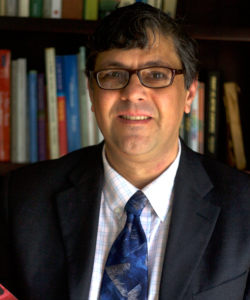
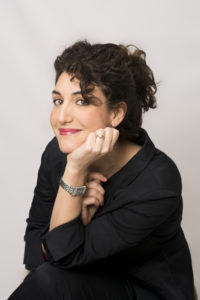
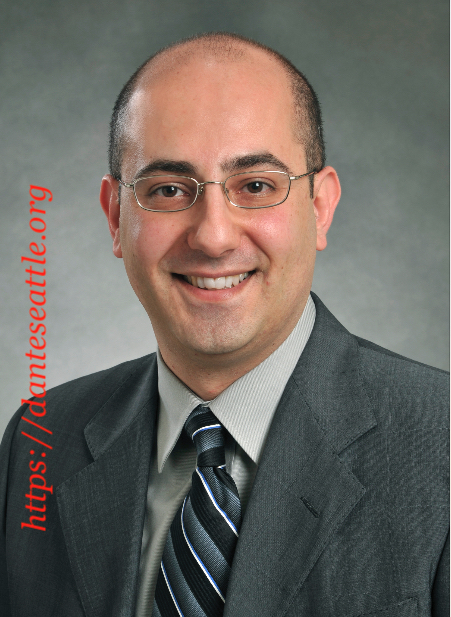
 Gabriella Vagnoli was born in Pisa, Tuscany, home of the famous Leaning Tower. She grew up in a multicultural family thanks to her Brazilian mom and remembers teaching Italian for the first time as a child to her Brazilian cousins. She obtained a Laurea in English and Spanish Language and Literature at the Università degli Studi di Pisa and during her college years spent a year in the University of Reading, UK, studying mainly the works of Shakespeare. After obtaining a Certificate as a Teacher of Italian (DITALS II) at the Università per Stranieri di Siena, she has taught in a full immersion school in Florence, a children's full immersion program in Chicago and a Community College in Illinois.
Gabriella Vagnoli was born in Pisa, Tuscany, home of the famous Leaning Tower. She grew up in a multicultural family thanks to her Brazilian mom and remembers teaching Italian for the first time as a child to her Brazilian cousins. She obtained a Laurea in English and Spanish Language and Literature at the Università degli Studi di Pisa and during her college years spent a year in the University of Reading, UK, studying mainly the works of Shakespeare. After obtaining a Certificate as a Teacher of Italian (DITALS II) at the Università per Stranieri di Siena, she has taught in a full immersion school in Florence, a children's full immersion program in Chicago and a Community College in Illinois. Tiziana was born and raised in Sardinia, a beautiful Italian island in the Mediterranean Sea. She has always been passionate about foreign languages and cultures, and studied French and German at the Scuola Superiore Interpreti e Traduttori in Milan, where she obtained her first Foreign Languages and Interpreter BA degree. She then pursued her MA in English and German Language and Literature at IULM, one of the most prestigious universities in Milan, Italy for Language and Communication studies.
Tiziana was born and raised in Sardinia, a beautiful Italian island in the Mediterranean Sea. She has always been passionate about foreign languages and cultures, and studied French and German at the Scuola Superiore Interpreti e Traduttori in Milan, where she obtained her first Foreign Languages and Interpreter BA degree. She then pursued her MA in English and German Language and Literature at IULM, one of the most prestigious universities in Milan, Italy for Language and Communication studies.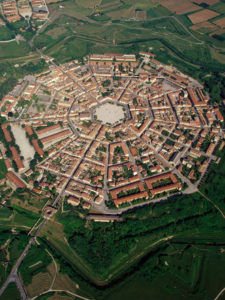
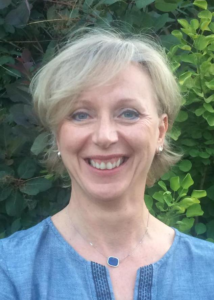
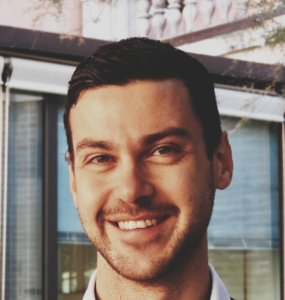
 Nicla is a native of Napoli, Italy. She has a Laurea in Materie Letterarie (degree in humanities) and a Laurea in Pedagogia (degree in Education) from the Università degli Studi di Cassino. She earned her M.A in Italian and her PhD in Comparative Literature from the University of Washington. She has published articles and book chapters on gender and theater as well as politics and religion in Counter-Reformation Italy and in the last years, has been teaching Italian literature, language, and culture in different institutions. In addition to teaching in our program, Nicla is authorized to cover the role of esaminatrice and intervistatrice in our PLIDA Examination Board.
Nicla is a native of Napoli, Italy. She has a Laurea in Materie Letterarie (degree in humanities) and a Laurea in Pedagogia (degree in Education) from the Università degli Studi di Cassino. She earned her M.A in Italian and her PhD in Comparative Literature from the University of Washington. She has published articles and book chapters on gender and theater as well as politics and religion in Counter-Reformation Italy and in the last years, has been teaching Italian literature, language, and culture in different institutions. In addition to teaching in our program, Nicla is authorized to cover the role of esaminatrice and intervistatrice in our PLIDA Examination Board.